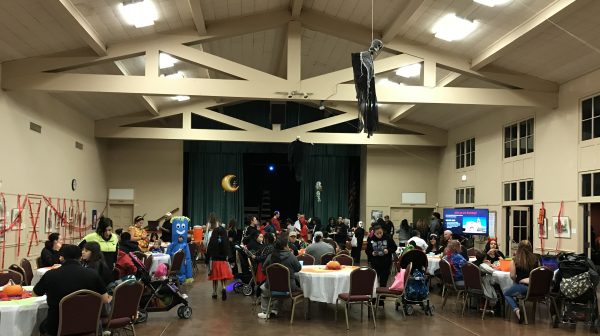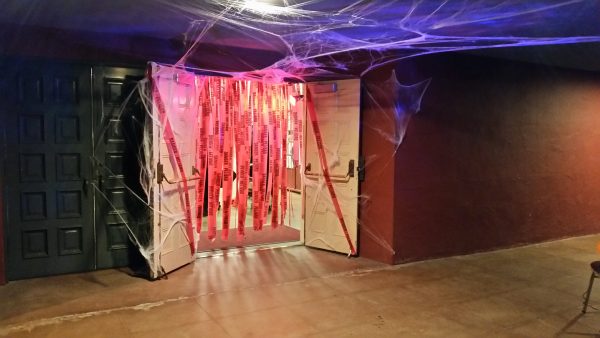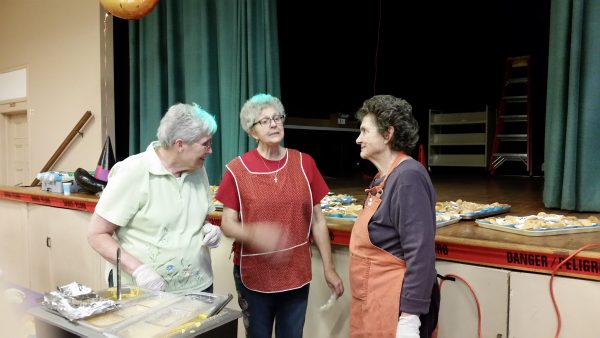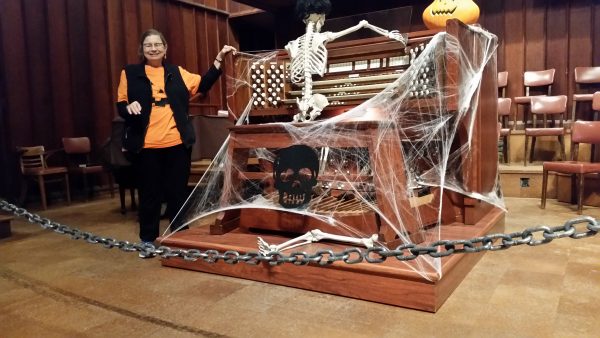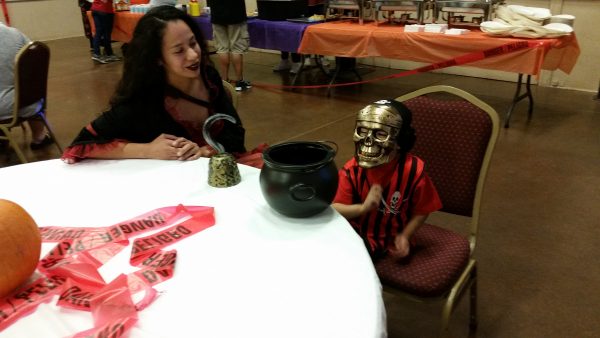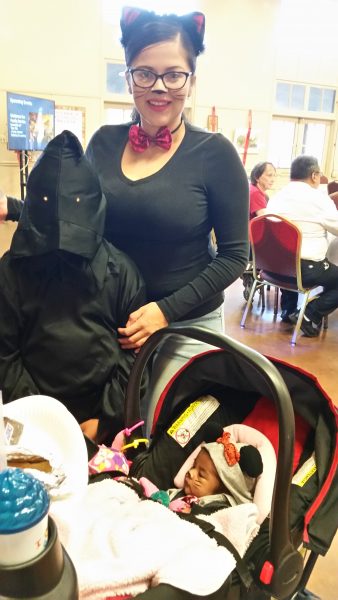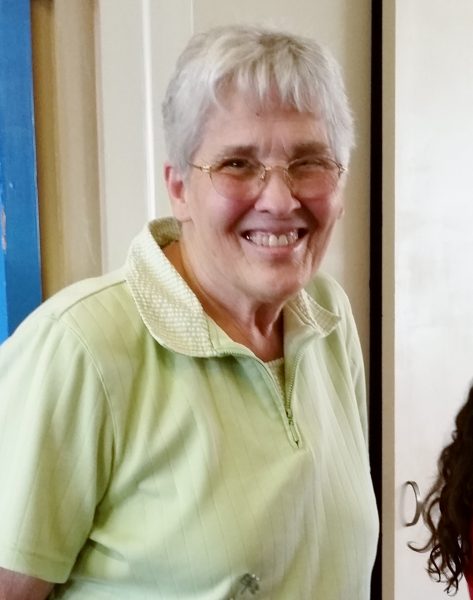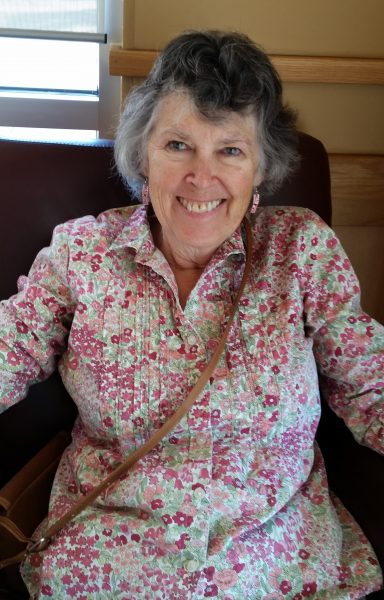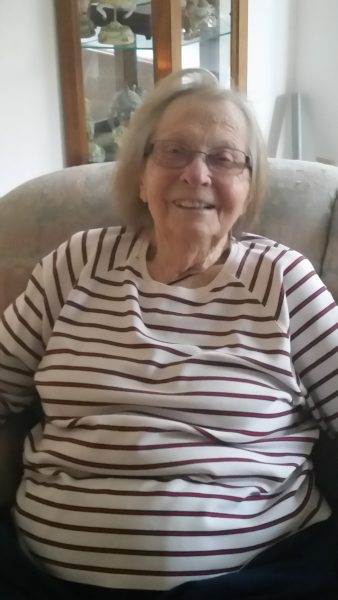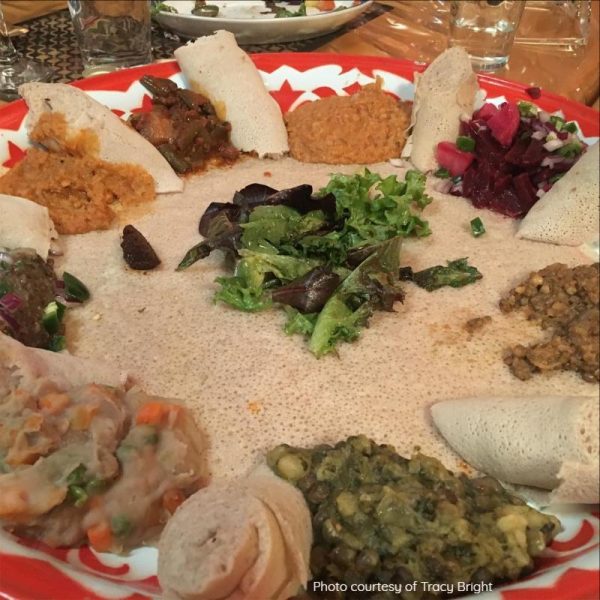A column dedicated to the folks in the pews.
Written by Dale Buchanan
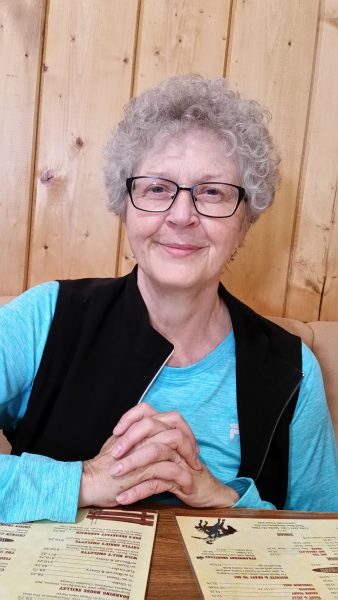
Getting to know Pat is an experience that I highly recommend. A visit with her is like a ride on a whirlwind. When Gayle and I caught up with Pat, we were in three cars coming from three directions and on tight schedules intent on getting lunch and on to the next place on time. Pat and Gayle had arranged to meet for lunch and talk about Prayer Ministry. I learned about this meeting and more-or-less crashed the party. I convinced Pat that we could squeeze in an interview for this “From the Pews” post. She graciously agreed. We ordered lunch and they proceeded with their meeting. Before our lunches arrived, the ladies had agreed that they were going to need another meeting. I was delighted!
Pat had to go out the door at 1 p.m. It was just 12 noon giving me an hour. I had made myself an outline and Gayle was prepared to make notes. I was sure that I had everything going my way. I would ask a question, Pat would answer, Gayle would record her words, and I would go home and compose the essay I had more-or-less already planned by just filling in the dates, names, and places.
Wrong! This free-thinking, independent woman had other plans. I asked first-of-all where she was born. Unhesitatingly she began an account of a trip to India. We did get around to where she was born and grew up but that will come later. She was anxious to tell us about how a hummingbird led her to decide to travel to India to share her medical skills and how she came face-to-face with what she called cultural shock. Traveling a great deal of the time alone by train, she was profoundly affected when the native people asked, “Why do you do this? You are not one of us and we are not of the same faith. Why?” She would answer, “Because of my faith.” This faith-filled experience continues to impact her life and she speaks of this time in India with awe.
Our lunches arrived and the narrative continued. Gayle trying to keep up, Pat telling us about her dad, mom, siblings, and growing up in the little town of Oak Harbor, Ohio. I ate my chili fries and loved her stories. Trusting both of these competent women, I was eating my lunch and blocking out a structure for this essay that was coming together in my mind when Pat switched gears and revealed another facet of her character. In this snapshot she was in nurses training. Her voice softened as she recounted the first time she held an old man’s hand as he lay dying. As it happened the old gentleman passed before the family arrived. When the family arrived they were so relieved that he did not die alone. “After that,” she said, “in my career as an ICU nurse, I made it my practice to never let a patient die alone. I always stayed with the patient holding a hand until the family came.”
Then there is on her “bucket list” a dreamed of visit to Uganda and a chance to meet face-to-face with the thirteen-year-old African child she and Mike adopted through World Vision when this little boy was six-years-old.
My hour was almost over. I peeked at my watch and Pat caught me watching. “What time is it, Dale?” I answered, and she said, “I must go.” “Just one more question,” I pleaded. “How did you and Mike meet?” It is obvious that Mike is the love of Pat’s life. With that question, I had her and I am sure she was late for her appointment. “Mike has the biggest heart I have ever seen. Through thick and thin, good times and bad, his love has always been there. From breast cancer to brain tumor, his support has encouraged and uplifted me. Oh, and by the way, we met at an outdoor wedding where he ate three plates of food—more than I had ever seen anyone eat in one sitting. He called me three weeks later and the rest is history.”
Dale, three principles have guided me all of my adult life: (1) God is sovereign, (2) God is in control, (3) God has a plan for me and every other person to fulfill his plan. As you read these principles and the stories I have written, I hope you can see between the lines this woman’s faith shining through from India to Africa to her home with Mike.
I will end with Gayle’s comment as we headed toward our cars, “Pat is a remarkable woman!”
Dale Buchanan is a member of FCCF with a passion for stories and writing. In between penning his own memoirs, he is helping us get to know our members, one pew at a time.
